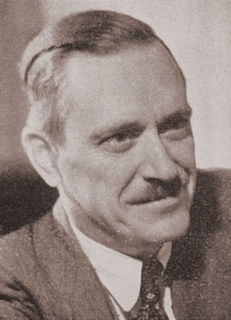A Quote by Stuart Ewen
The ever-mounting glut of waste materials is characteristic by-product of modern consumer society. It might even be argued that capitalism's continual need to find of generate markets means that disposibility and waste have become the spine of the system. To consume means, literally, to destroy or expend, and in the garbage crisis we confront the underlying truth of a society in which enormous productive capacities and market forces have harnessed human needs and desires, without regard to the long or even short-term future of life on the planet.
Quote Topics
Argued
Become
By-Product
Capacities
Capitalism
Characteristic
Confront
Consume
Consumer
Crisis
Desires
Destroy
Enormous
Even
Ever
Find
Forces
Future
Garbage
Generate
Human
Human Needs
Life
Literally
Long
Man Needs
Market
Market Forces
Markets
Materials
Means
Might
Modern
Mounting
Need
Needs
Planet
Product
Productive
Regard
Short
Short-Term
Society
Spine
System
Term
Truth
Underlying
Waste
Which
Without
Related Quotes
Until the 19th century, the term 'to consume' was used mainly in its negative connotations of 'destruction' and 'waste'. Tuberculosis was known as 'consumption', that is, a wasting disease. Then economists came up with a bizarre theory, which has become widely accepted, according to which the basis of a sound economy is a continual increase in the consumption (that is, waste) of goods
Adam Smith saw the greed of modern capitalism for what it was - a form of destructive ambition that may have favorable effects on the productive capacities of society, but which is of no direct benefit to anyone - not even to the greedy themselves, whose illusory chase after a will-o-the-wisp leaves them morally bankrupt and unhappy.
The first cause of waste is probably even buried in our DNA. Human beings have a need for maintaining consistency of the apperceptive mass. What does that mean? What it means is, for every perception we have, it needs to tally with the one like it before, or we don't have continuity, and we become a little bit disoriented.
Industrial Society is not merely one containing 'industry,' large-scale productive units capable of supplying man's material needs in a way which can eliminate poverty: it is also a society in which knowledge plays a part wholly different from that which it played in earlier social forms, and which indeed possesses a quite different type of knowledge. Modern science is inconceivable outside an industrial society: but modern industrial society is equally inconceivable without modern science. Roughly, science is the mode of cognition of industrial society, and industry is the ecology of science.
Poverty is not something people impose on themselves for want of effort and community organisation. It is constructed by divisive and discriminatory laws, inflexible organisations, acquisitive ideologies of wealth, a deeply rooted class system and policies which serve privilege in the short term and destroy society in the long term.
Capitalism is not only a better form of organizing human activity than any deliberate design, any attempt to organize it to satisfy particular preferences, to aim at what people regard as beautiful or pleasant order, but it is also the indispensable condition for just keeping that population alive which exists already in the world. I regard the preservation of what is known as the capitalist system, of the system of free markets and the private ownership of the means of production, as an essential condition of the very survival of mankind.
Human beings are themselves considered consumer goods to be used and then discarded. We have created a “disposable” culture which is now spreading. It is no longer simply about exploitation and oppression, but something new. Exclusion ultimately has to do with what it means to be a part of the society in which we live; those excluded are no longer society’s underside or its fringes or its disenfranchised – they are no longer even a part of it. The excluded are not the “exploited” but the outcast, the “leftovers”.
You point out that war is only a symptom of the whole horrid business of human behavior, and cannot be isolated. And that, even if we abolish war, we shall not abolish hate and greed. So might it have been argued about slave emancipation, that slavery was but one aspect of human disgustingness, and that to abolish it would not end the barbarity that causes it. But did the abolitionists therefore waste their breath? And do we waste ours now in protesting against war?
Economists use the word consume to mean "utilize economic goods," but the Shorter Oxford Dictionary's definition is more appropriate to ecologists: "To make away with or destroy; to waste or to squander; to use up." The economies that cater to the global consumer society are responsible for the lion's share of the damage that humans have inflicted on common global resources.
The so-called consumer society and the politics of corporate capitalism have created a second nature of man which ties him libidinally and aggressively to the commodity form. The need for possessing, consuming, handling and constantly renewing the gadgets, devices, instruments, engines, offered to and imposed upon the people, for using these wares even at the danger of one’s own destruction, has become a “biological” need.
If the life-supporting ecosystems of the planet are to survive for future generations, the consumer society will have to dramatically curtail its use of resources - partly by shifting to high-quality, low-input durable goods and partly by seeking fulfillment through leisure, human relationships, and other nonmaterial avenues. We in the consumer society will have to live a technologically sophisticated version of the life-style currently practiced lower on the economic ladder.

































